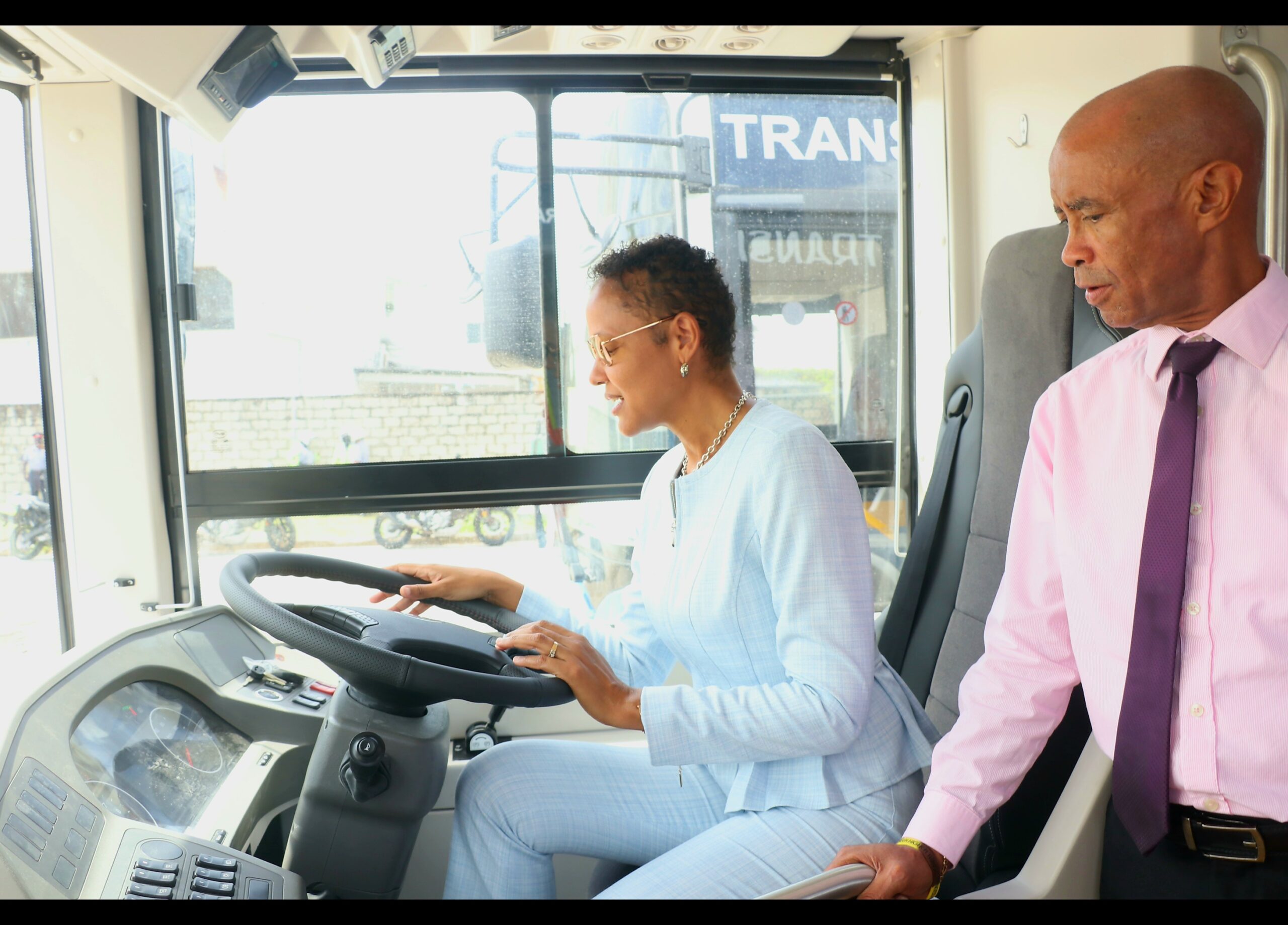Barbados now has the largest electric bus fleet in the Western Hemisphere, following the formal handover of 30 additional vehicles from the People’s Republic of China on Friday.
The donation brings the fleet to 89 electric buses and marks the third batch delivered in the ongoing cooperation between the two countries.
The new units are expected to be operational by May 1, according to Deputy Prime Minister and Minister of Transport and Works Santia Bradshaw.
Speaking during the ceremony at the Barbados Port Authority, Bradshaw said the buses would not only accelerate the island’s transition to clean energy but also improve the delivery of public transport, especially in underserved rural areas.
“On behalf of the people and Government of Barbados, I wish to extend sincere thanks for this gift from the People’s Republic of China, which will not only accelerate our transition to a fully electric fleet but also provide us with the opportunity to improve the delivery of public transportation on the island,” she said.
The donation also includes 30 Direct Current (DC) chargers and a supply of spare parts to support maintenance.
Three technicians from Chinese bus manufacturer BYD Auto, along with a fourth specialist for charger installation, will assist with the setup.
The transport minister said that BYD is also preparing to open a local office in Barbados to further support fleet management and technical training.
“The team will now be in a position to service the fleet of electric vehicles that we have on island, while at the same time providing that transfer of resources that is needed for our engineers and our teams,” Bradshaw said.
Before entering service, the buses must be weighed, registered, inspected, and outfitted with fare boxes, destination signs, cameras, Wi-Fi systems, and cashless payment tools.
Bradshaw said those preparations would begin immediately at the Mangrove depot in St Philip, where the buses were sent following the handover ceremony.
“We have asked the team to work toward a May 1 deployment date. While I’m mindful of a few holidays ahead, they’ve committed to doing what’s needed to meet that target,” she said.
The minister also addressed recent public concerns about buses being seen idle at the depot.
She explained that Mangrove serves as a central facility for maintenance, charging, and turnaround, stating, “So when you see vehicles parked, it isn’t necessarily that all of the buses are broken down.”
Bradshaw said the electric buses have already led to reduced fuel and maintenance costs, and with the addition of this new fleet, Barbados is expected to further lower operational expenditure by the end of the financial year, even as the long-term goal remains the full retirement of diesel-powered buses.
She said the government has also secured funding for 35 additional electric buses, which are expected to arrive before the close of this fiscal year.
“As we continue to modernise our scheduling and expand access where it is needed most, this next wave of buses will allow us to better match transport availability with demand, especially in remote communities,” she added.
The minister said areas such as St Lucy, St Andrew, Boscobel, Josie Hill, and Pie Corner are among those expected to benefit from the expanded fleet.
Bradshaw acknowledged that limited availability of buses in recent months had forced authorities to prioritise school transportation, sometimes at the expense of daytime service for working adults and the elderly.
“Nothing hurts me more than seeing a little old lady waiting for hours in a bus terminal,” she said.
“Whatever we have to do to expedite these processes to make sure that life is made a little bit easier for the people who have no other choice but to use public transportation… All hands are now on deck to make sure that this becomes a reality.”
Bradshaw also credited the Chinese government for its continued partnership with Barbados and welcomed further collaboration in infrastructure, public services, and green energy. (SM)





